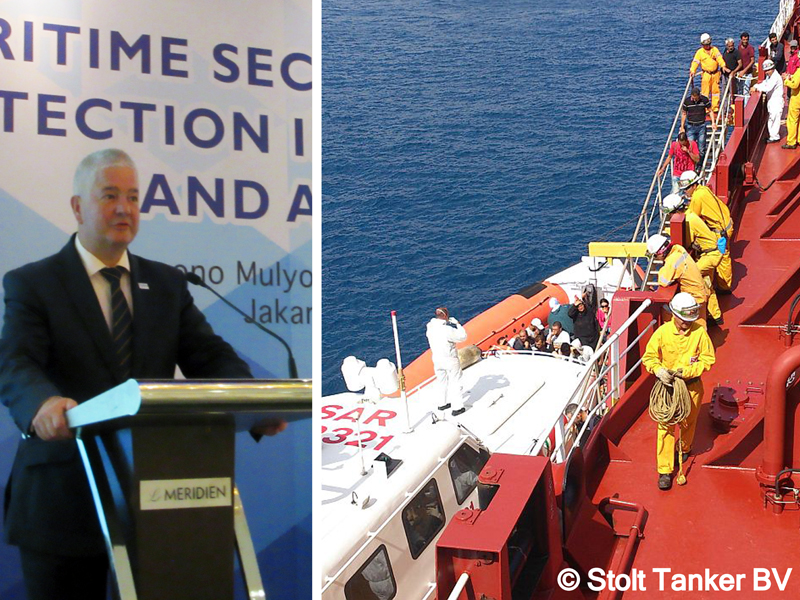Migration should be managed so that migrants are not put in the dangerous position of having to be rescued at sea. This was the message of IMO’s Chris Trelawny, Special Advisor on Maritime Security and Facilitation, speaking at the “Maritime Security and Migrant Protection in the Bay of Bengal and Andaman Sea” workshop in Jakarta, Indonesia (26-27 July). Addressing the point that merchant ships are not designed for mass rescue, Mr. Trelawny said that rescues will continue, but safe, legal, alternative pathways to migration must be developed, including safe, organized migration by sea, if necessary.
Recognizing that the business model for mixed migration by
sea in the Bay of Bengal and Andaman Sea differs from that in the
Mediterranean, some of the regional maritime security and counter piracy strategies
developed by IMO Member States could be useful in addressing mixed migration by sea,
Mr. Trelawny said.
A range of international instruments apply to migrants and refugees in the maritime domain. These come under the auspices of different United Nations bodies and international organizations, and include UNCLOS; the Protocol against the Smuggling of Migrants by Land, Sea and Air; and human rights and refugee law under OHCHR, UNHCR and IOM.
Additionally, a number of IMO treaties include provisions relating to migration by sea. These include SOLAS chapter V on Safety of Navigation, which requires the master of a ship at sea able to provide assistance to persons that are in distress at sea, to do so regardless of the nationality or status of such persons or the circumstances in which they are found.
The Jakarta meeting was organized by
the International Organization for Migration (IOM)
which will shortly become a Related Organization of
the United Nations.
